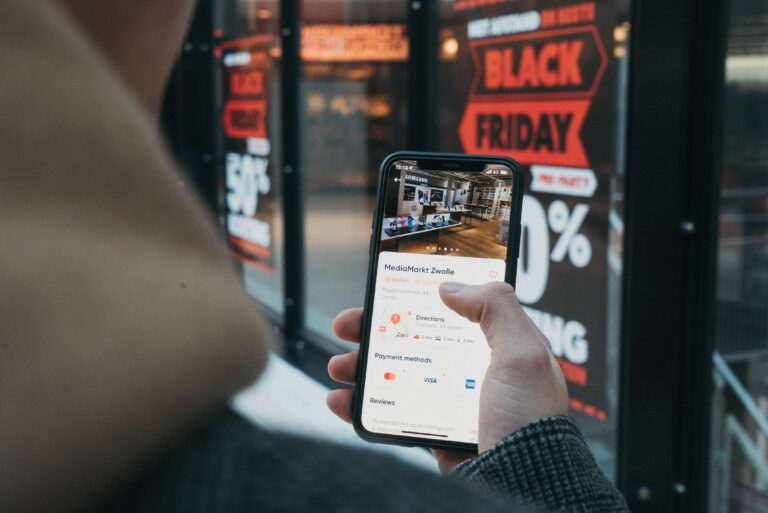By Udo Rauch, Chief Sales Director, Emporix
The pandemic certainly hasn’t made business any easier. For most organizations, it has thrown up new additional challenges and made it even harder to compete. So perhaps the most important question for any online business is this: How do I invest to clearly differentiate my business today, and how do I maintain that differentiation as we move into an uncertain future?
Online shopping is more competitive than ever, yet many companies spend large portions of their budget just maintaining capabilities that do not give them any competitive advantage whatsoever.
Let’s get specific – do you consider your shopping cart functionality a part of what differentiates you online? The answer should really be a resounding “no”, because every online business has a shopping cart, and there’s nothing inherently unique or advantageous about having one. Of course, you might choose to interact with your customer differently on the checkout page, perhaps by displaying unique offers or promotions that are specific to a certain customer, but what we’re talking about here is a tailoring of the customer experience rather than an inherent benefit of simply having a checkout page. The basic cart functionality itself is really nothing special, and the same could be said for a number of other services such as product catalogs, payment services and more.
This isn’t necessarily bad practice. In fact, it’s more common than you might realize. Many e-commerce companies use the same technology as their competitors to avoid having to build everything from the ground up. A checkout is just a checkout, right?
Not quite. Just because two businesses share the same technology does not necessarily mean their solutions are carbon copies of one another or that their customers receive exactly the same experience. In fact, it may surprise you to learn that by using standard frameworks and capabilities such as cloud platform providers, containerization and orchestration, an e-commerce business can enjoy benefits and efficiencies that allow them to focus more of their time, money and effort into building functionality rather than simply performing housekeeping. So while there’s no need to reinvent the wheel, container orchestration tools like Kubernetes can help you grab the wheel and steer your business toward success.
The technology stack
It’s never really been a question of whether a business does everything itself, but rather what technology stack it employs and whether it allows for sophisticated interoperability of standard components. On their own, these standard functional components such as a cart or checkout don’t look different from one business to the next, effectively becoming a commodity that is simply delivered at the most reliable and low-cost method possible.
Having containerization as part of a technology stack, however, is giving businesses far more options in terms of how it packages and deploys functions. Containerization allows businesses to essentially ‘mix and match’ third-party services like payment providers, allowing them to streamline and scale at will.
In theory, any business could write and manage its own technology to do this containerization, but in reality, why should it? There is no competitive advantage and it would simply incur a large overhead, as well as the burden of maintaining the containerization code itself. Instead, most businesses opt simply to use one of the common toolsets available on the market to deliver this capability to their teams – such as Kubernetes – and let someone else worry about the maintenance.
In the same way, there is really no competitive advantage for a business to build and maintain its own version of a shopping cart. Instead, it can simply use one of the many cart services that are available on the market that, thanks to containerization, APIs and Kubernetes, will be more or less ‘plug and play’ compatible.
If retailers were able to tap into all of this functionality as part of an all-encompassing e-commerce solution, the benefits would be huge, and would largely fall into two key areas:
- It would enable a business to focus all of its available resources on building and driving genuine differentiating qualities to the customer experience, rather than trying to take care of basic housekeeping functions like payment systems and checkouts.
- It would reduce a company’s costs by removing the need for it to maintain the large number of services necessary to carry out basic functions, instead freeing up resources to deliver actual benefits.
It’s high time businesses started to view these basic components for what they are – the wheels on which e-commerce now operates. New car manufactures don’t go about reinventing wheels, they instead add layers of value and functionality on top of those wheels, improving on the technology by adding to it and enhancing it. This is precisely the approach that retailers need to take in 2021. Instead of constantly reinventing basic services, use the foundations that have already been developed through years of trial and error, and build and adapt from there.
In other words, put your precious resources into the things that can truly differentiate your business in a crowded marketplace.
About the author

Udo Rauch is an expert in enterprise software and chief sales director at specialist e-commerce software provider Emporix.
Related Articles

Transaction-Level Data Is Raising the Bar for Attribution and Accountability
For retailers building or scaling retail media and broader commerce marketing programs, this shift reshapes how audiences should be built and forces a more disciplined approach to transparency and cross-channel accountability.

How Rising Consent Awareness Is Reshaping Customer Experience, Data Quality, and Campaign Performance
It also revealed that another 35% expect to deploy personalized AI recommendations in the next year, as AI moves from pilots into the heart of omnichannel journeys, search and merchandising.

5 Strategies for Scaling BOPIS Operations During Holiday Peak Season
Companies across various sectors are leveraging automation to enhance in-store experiences and improve customer satisfaction, including within BOPIS systems. It is shown to bolster productivity and decision-making, too.

How to Evaluate Retail Automation Solutions for Your Business
To achieve the benefits of retail automation, you must find the right partner. Consider the following tips to make an informed decision.


 for the latest news and job opportunities in retail tech
for the latest news and job opportunities in retail tech 